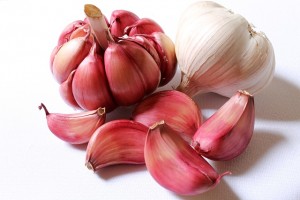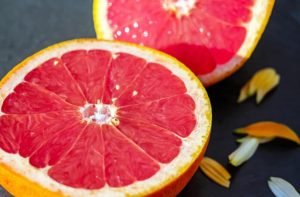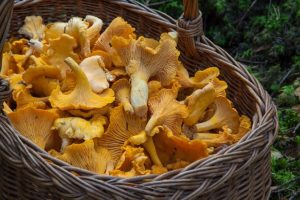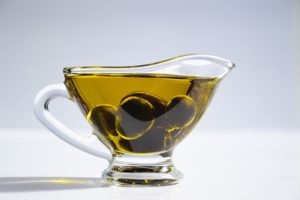When it comes to cancer prevention, diet has a significant role to play. While there’s no magic food guaranteed to cure the deadly disease, this lifestyle factor can still make a huge difference in lowering your risk of developing malignant tumors. And if you’re already battling cancer, consuming healthier meals will help maintain your strength and boost your emotional wellbeing as you go through therapy.
In this article, we delve into the science behind top superfoods that may reduce the risk of cancer.
-
Garlic

Many institutions hail garlic as the most powerful anti-cancer food, and for good reason. The little bulb-shaped vegetable fights against different types of cancer, such as that of the breast, lung, brain, prostate, pancreas, and stomach. When chopped, bruised, or crushed, garlic produces allicin, an active component that has been shown to kill off cancer cells in multiple test-tube studies.
It is the antibacterial properties of garlic that may slow down cancer’s cell proliferation, stop its ability to enhance genetic repair, and prevent the formation of carcinogenic compounds in the body. Garlic also has flavonoids or the aromatic plant substances considered to have antioxidant and anti-inflammatory properties which help inhibit cell damage. You can use garlic in several ways, but it’s best to consume it fresh and uncooked to preserve most of its nutrients.
-
Broccoli
All cruciferous vegetables (think cabbage, cauliflower, and kale) contain cancer-fighting properties, but only broccoli has the most sulforaphane. One study shows that this potent dietary component may reduce the number and size of breast cancer cells by up to 75 percent. The more broccoli, the better, research suggests, so add it wherever you can.
-
Grapefruit

This sweet orange-pomelo hybrid may not be a miracle fat-burner as some claim, but it sure does promote healthy weight. This tasty fruit is packed with phytochemicals and vitamins. Its red and pink varieties contain carotenoids (including beta-carotene and lycopene) as well as dietary fiber. Dietary fiber plays a role in weight control and cancer prevention. According to the American Institute for Cancer Research, diets high in foods containing dietary fiber can lower the risk of colorectal cancer. Meanwhile, eating more fruits may lower one’s risk of developing lung cancer.
-
Winter Squash
Unlike summer squash, winter squash have tough skins. They also come in a variety of flavors, textures, and colors. Names like banana, buttercup, delicate, and turban may pique your interest, but if you’re like many Americans, their textures and irregular shapes have kept you from venturing beyond the usual canned pumpkin. Winter squash are excellent sources of dietary fiber, vitamin A, and vitamin C. They are also a good way to get some potassium.
-
Mushrooms

The ancient Egyptians believed consuming mushrooms brought immortality. While their scientific method was not entirely sound by today’s standards, scientists are currently investigating the medicinal properties of mushrooms and they are seeing fascinating results.
Mushrooms are one of the very few foods that inhibit aromatase, an enzyme that produces estrogen known to cause hormone-related cancers. Some varieties of mushrooms, including the common pizza topping button mushrooms, have strong anti-cancer activity.
-
Nuts
According to a report from the Harvard Nurse’s Study, those who eat nuts in their adolescence may have a better chance of combating breast cancer later in life. On a follow-up study, those eating more nuts, beans, peanut butter, or lentils were found to have gained some degree of resistance against fibrocystic breast disease, which places a person at a higher susceptibility for cancer. In a study published in the British Journal of Cancer, two handfuls of nuts a week may defend against pancreatic cancer, one of today’s most fatal malignancies.
-
Cinnamon

In cancer cells, HIF-1 (hypoxia-inducible factor-1) induces the expression of VEGF (vascular endothelial growth factor). This is a marker in many human cancers and is closely associated with increased mortality. Various treatments use anti-VEGF agents to fight cancer, but most of these have severe side effects like bleeding and hypertension. As a result, the race is on for the discovery of non-toxic anti-VEGF compounds.
Surprisingly, a similar-acting anti-cancer ingredient, cinnamon, is readily available at your local café. Procyanidins and cinnamaldehyde, two of the main ingredients of cinnamon, have been proven to have beneficial activities, such as antimicrobial, antioxidant, anti-diabetic, and anti-inflammatory properties.
-
Flaxseed
High heart-healthy fats and fiber, flaxseed can be a healthy topping to your snacks. Several studies show that flaxseed may help protect against breast, prostate, and colorectal cancer. It can also help your body heal from the disease. It is ideal to ground whole flaxseed because it makes it easier for your body to digest (note that flaxseed can pass through the intestines undigested).
-
Olive Oil

Researchers at Hunter College in New York City have discovered that an ingredient in extra-virgin olive oil kills a range of cancer cells without damaging healthy cells. Oleocanthal, a compound that ruptures a part of the malignant cell, releases enzymes that cause cell death.
The substance causes cancer cells to die within 30 minutes to an hour after application. It was found that oleocanthal was puncturing the vesicles inside the cancer cells that store the cell’s waste. Swapping out other oils in your diet for olive oil is a simple way to take advantage of its health benefits.
-
Cayenne Pepper
This common household spice may have superb anti-cancer abilities. High in vitamins A, C, calcium, potassium, and B complex, the cayenne pepper may be able to rebuild gut wall to improve digestion, stop a heart attack in its tracks, help with weight loss, and destroy cancer cells.
In addition, cayenne acts as a catalyst and increases the effectiveness of other herbs. The active ingredient in cayenne is called capsaicin, which has been discovered to induce cell death in cancerous cells without affected normal cells.
As new research continues to emerge, we expect to see more data on the impact of diet on your risk of cancer. Paired with an active lifestyle, adding whole foods to your diet will surely improve many aspects of your health.


